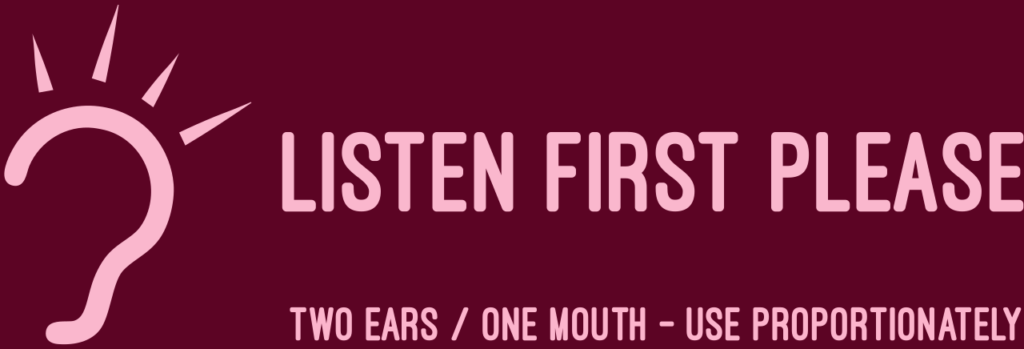 | “There are children playing in the streets who could solve some of my top problems in physics, because they have modes of sensory perception that I lost long ago”. J. Robert Oppenheimer |
Tabula Rasa is a Latin term meaning Blank or Erased Tablet. In 1690, John Locke presented the concept that the human mind is a “blank slate” at birth and we learn to understand the world as we grow and are influenced by our community and by our unique experiences. Let me be very clear, I have no clue if Locke was totally correct in his theory but I do know that our life experiences influence us greatly and color how we view reality! We unquestionably see “reality” based on a host of differences in our experiences. For example, I remember vividly my disdain for some of my Black classmates in high school when they would not recite the Pledge of Allegiance at the beginning of the school day. As I look back, if I were Black in the late 1960’s, I might have joined in on this protest because the America they had come to know was very different from the America I knew. My Black classmates may have felt very compromised in saying …”with liberty and justice for all”. So – maybe Locke is correct to some extent – maybe we need to make certain that we understand the “lens” through which we see “reality” and understand that our “lens” may be quite different from someone with whom we are having a conversation.
In Stephen Covey’s classic book, “The 7 Habits of Highly Effective People” he tells the story of his research in preparation for teaching IBM executives. Covey wrote:
As I researched and prepared these presentations, I became particularly interested in how perceptions are formed, how they govern the way we see, and how they govern the way we behave. This led me to a study of expectancy theory and self-fulfilling prophecies or the “Pygmalion effect,” and to the realization of how deeply embedded our perceptions are. It taught me that we must look at the lens through which we see the world, as well as at the world we see, and that the lens itself shapes how we interpret the world.
In looking at the thoughts of Covey and the thoughts of Locke – I would posit that they are somewhat in Lock Step. (pun intended)
Soo… since this is a blog about listening, what type of challenges do you think our “perceptions of reality” create when we are trying to understand someone’s beliefs that run counter to your strongly held beliefs? Suffice it to say – it can be a very real challenge. That said, a challenge is just that, a challenge. A challenge is not insurmountable – it is just an obstacle that needs to be overcome. Let’s see how we can handle it.
Firstly, let’s use a quote from the bible. I will quote James 1:19 which states: My dear brothers and sisters, take note of this: Everyone should be quick to listen, slow to speak and slow to become angry…
Why start with this quote? Regardless of your beliefs, it is hard to dispute that there is great wisdom to be found in the bible. I love this verse because it addresses the same issues we face today when our beliefs are challenged. James states;
- “be quick to listen” He clearly values the need for active listening.
- “slow to speak” Make certain that you absorb what is being stated. Take time to think about their point of view.
- “slow to become angry” Let’s face it, when our reality is challenged, we become defensive and often we become angry. That human trait is absolutely no different today then it was for the people that lived thousands of years ago. When we follow James’s three step system, we have a much better chance of being able to view the discussion from a different perspective.
The next time you find yourself getting heated during a discussion, gather yourself, take a breath, and reflect on how that person’s “reality” might be different from yours. Find a way to be “quick to listen”, “slow to speak” and “slow to become angry”. You might just find that you will learn something new and you might even make a friend.
Thoughts? Please hit the contact button and reach out!


4 responses to “My American Is Different Than Yours and That’s Not Bad!”
I loved this, Tom! Felt I owed it to you to listen/read right away since I did not listen first. I am a total Steven Covey devotee and to a lesser degree to his son. I also want to thank you for the reminder from the Bible. I have really been struggling with anger lately and this is a Godsend! Thank you!🙏. God Bless!
Hi Jake,
Trying to get familiar with WordPress and how it works. The note from Dom T above – that was from me!! Again some confusion!
We all struggle with anger at times. Something I have found helpful is to review Dale Carnegie’s Golden Book. (If you google Dale Carnegie Golden Book it will take you there.) The section on Cultivate a Mental Attitude that will Bring You Peace and Happiness is simple but helpful! Love hearing from you Jake! Tom
Your version on “seek first to understand, then to be understood “. Steven Covey, 7 Habits
Hi Jake! Sorry for the delay! Just learning WordPress and I did not know where to find the comments!!Glad you found the blog helpful! Tom